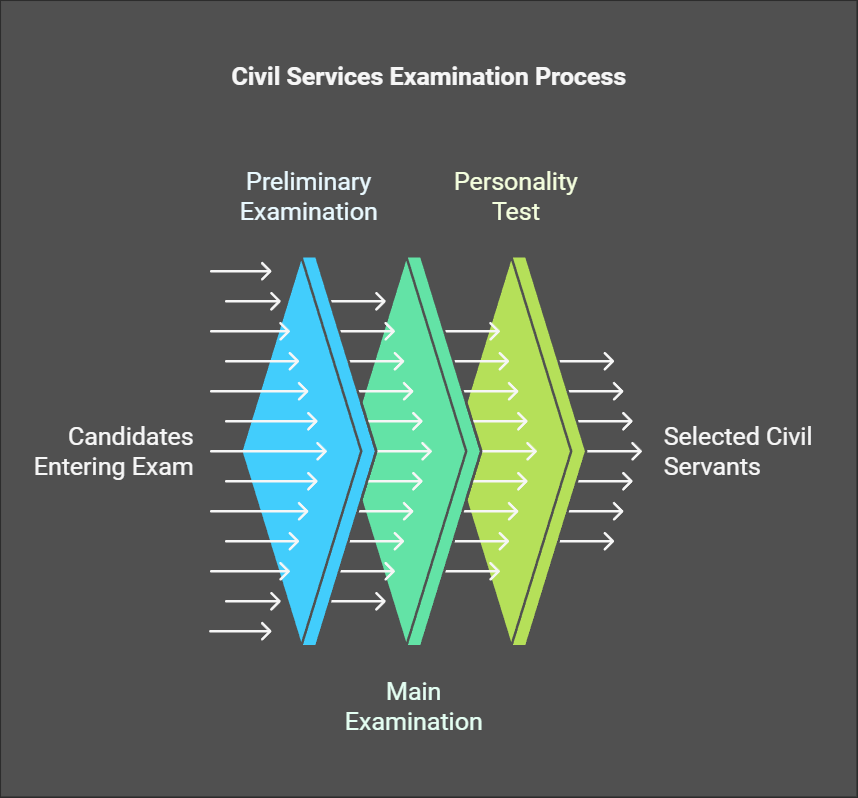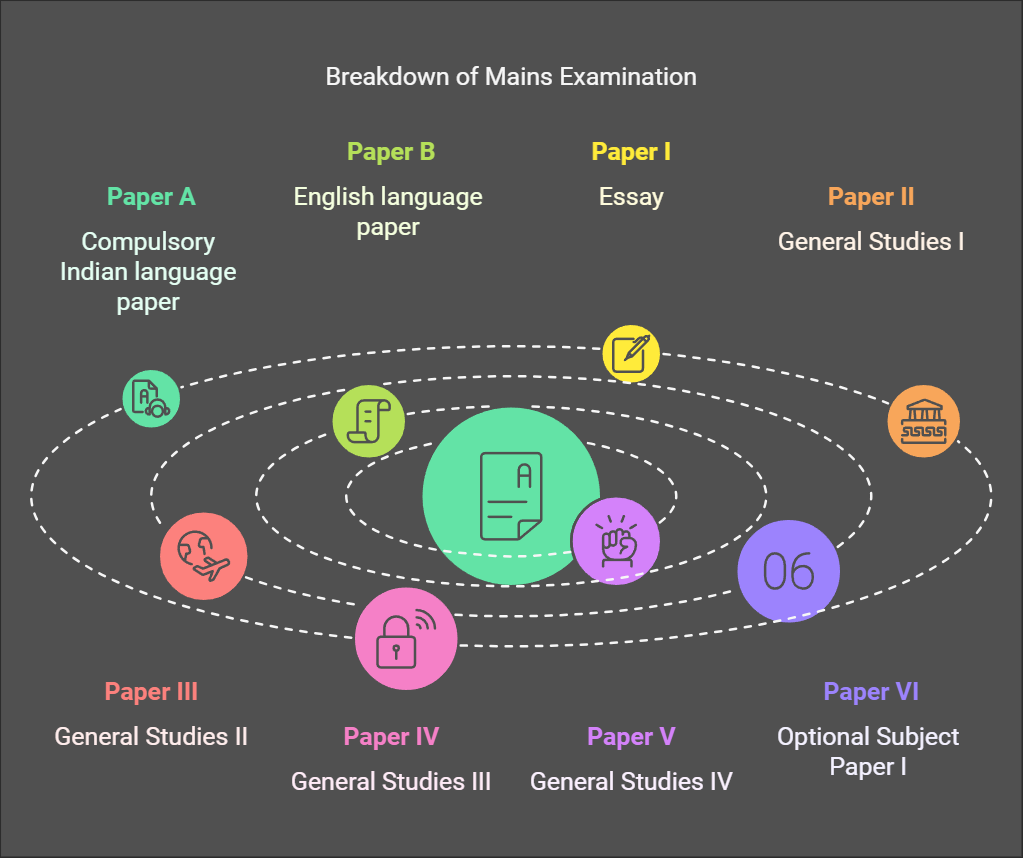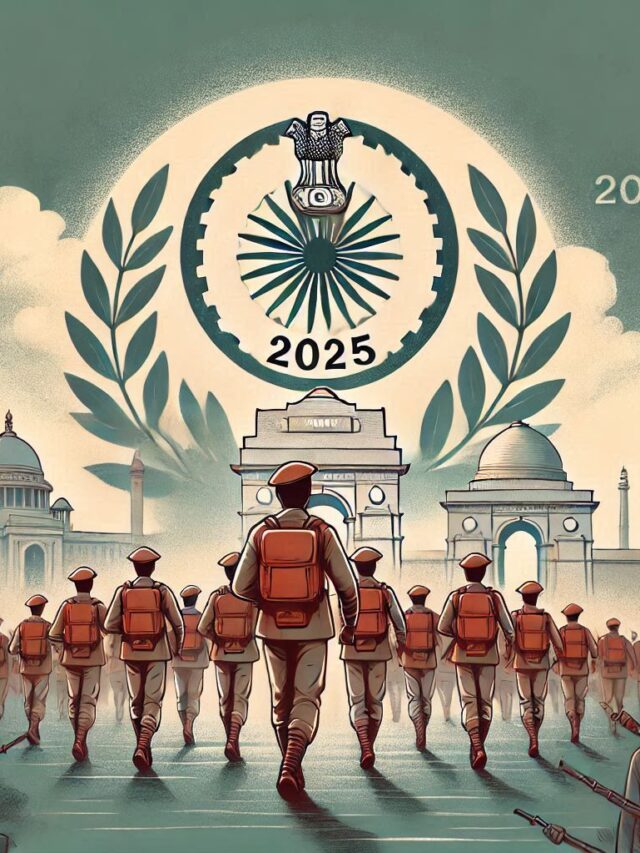The UPSC Civil Services Examination (CSE) is one of the most prestigious and challenging exams in India. It opens the door to a career in the Indian Administrative Service (IAS), Indian Police Service (IPS), Indian Foreign Service (IFS), and various other central government services. If you aspire to make a significant impact on society and serve the nation, the UPSC CSE 2025 is your gateway. This comprehensive guide will provide you with insights, tips, and strategies to navigate the UPSC CSE journey successfully.
Understanding the UPSC Civil Services Examination
The Union Public Service Commission (UPSC) conducts the Civil Services Examination annually to recruit officers for various civil services in India. The examination process is rigorous and consists of three stages:
- Preliminary Examination (Prelims): This is the first stage of the exam and consists of two objective-type papers: General Studies (GS) Paper I and Civil Services Aptitude Test (CSAT) Paper II. The Prelims serve as a screening test, and only those who qualify are eligible for the Main Examination.
- Main Examination (Mains): The Mains is a descriptive examination that includes nine papers, out of which seven are considered for ranking. The papers cover various subjects, including Essay, General Studies, and optional subjects chosen by the candidates.
- Personality Test (Interview): Candidates who clear the Mains are called for a personality test or interview. The interview assesses the candidate’s personality, communication skills, and suitability for a career in civil services.

Eligibility Criteria
To appear for the UPSC CSE 2025, candidates must meet the following eligibility criteria:
- Nationality: Candidates must be Indian citizens.
- Age Limit: Candidates must be between 21 and 32 years of age as of August 1, 2025. Age relaxation is provided for candidates belonging to reserved categories.
- Educational Qualification: Candidates must hold a bachelor’s degree from a recognized university.
- Number of Attempts: General category candidates can attempt the exam a maximum of six times, while OBC candidates have nine attempts. There is no restriction on the number of attempts for SC/ST candidates.
Exam Pattern and Syllabus
Preliminary Examination
The Prelims consists of two papers, each carrying 200 marks. Both papers are objective-type and have negative marking for incorrect answers.
- General Studies (GS) Paper I: Covers topics such as current events, history, geography, polity, economy, environment, and general science.
- Civil Services Aptitude Test (CSAT) Paper II: Tests the candidate’s aptitude, logical reasoning, analytical ability, decision-making, and comprehension skills. This paper is of qualifying nature, requiring a minimum of 33% marks to pass.
Main Examination
The Mains consists of nine papers, with a total of 1750 marks. The papers are descriptive and cover various subjects:
- Paper A (300 marks): Compulsory Indian language paper.
- Paper B (300 marks): English language paper.
- Paper I (250 marks): Essay.
- Paper II (250 marks): General Studies I – Indian Heritage and Culture, History, and Geography of the World and Society.
- Paper III (250 marks): General Studies II – Governance, Constitution, Polity, Social Justice, and International Relations.
- Paper IV (250 marks): General Studies III – Technology, Economic Development, Biodiversity, Environment, Security, and Disaster Management.
- Paper V (250 marks): General Studies IV – Ethics, Integrity, and Aptitude.
- Paper VI (250 marks): Optional Subject Paper I.
- Paper VII (250 marks): Optional Subject Paper II.
The optional subjects can be chosen from a list provided by UPSC, and candidates should select a subject they are comfortable with.

Personality Test (Interview)
The interview carries 275 marks and assesses the candidate’s personality, communication skills, and overall suitability for a career in civil services. The final merit list is prepared based on the total marks obtained in the Mains and the interview.
Preparation Strategy
Preparing for the UPSC CSE requires dedication, discipline, and a well-structured strategy. Here are some tips to help you succeed:
- Understand the Syllabus: Familiarize yourself with the detailed syllabus for both Prelims and Mains. Make a list of topics and prioritize them based on your strengths and weaknesses.
- Create a Study Plan: Develop a realistic and achievable study plan that covers all subjects and allows time for revision. Allocate specific time slots for each topic and stick to your schedule.
- Read Standard Books: Refer to standard textbooks and reference materials for each subject. Some popular books include “Indian Polity” by M. Laxmikanth, “India’s Struggle for Independence” by Bipan Chandra, and “Environment and Ecology” by Shankar IAS.
- Stay Updated with Current Affairs: Regularly read newspapers, magazines, and online news portals to stay updated with current events and issues. Make notes of important news and events for revision.
- Practice Answer Writing: Practice writing answers for the Mains examination regularly. Focus on clarity, coherence, and presentation. Join a test series to get feedback on your answers and improve your writing skills.
- Take Mock Tests: Take regular mock tests for both Prelims and Mains to assess your preparation level and identify areas that need improvement. Analyze your performance and work on your weaknesses.
- Revise Regularly: Revision is crucial for retaining information and reinforcing concepts. Set aside time for regular revision and go through your notes and study materials frequently.
- Stay Healthy: Maintain a healthy lifestyle by eating a balanced diet, exercising regularly, and getting enough sleep. Managing stress and staying motivated are essential for effective preparation.
Resources and Study Materials
Here are some recommended resources and study materials for UPSC CSE preparation:
- NCERT Books: Start with NCERT textbooks for a strong foundation in basic concepts.
- Standard Reference Books: Refer to books by reputed authors for in-depth knowledge on specific subjects.
- Current Affairs Magazines: Read magazines like “Yojana,” “Kurukshetra,” and “Civil Services Chronicle” for current affairs and insightful articles.
- Online Platforms: Use online platforms like Unacademy, Byju’s, and ClearIAS for video lectures, study materials, and test series.
- Government Websites: Visit government websites like PIB, PRS, and Lok Sabha TV for official information and updates.
Final Thoughts
The UPSC Civil Services Examination is a challenging but rewarding journey. It requires hard work, perseverance, and a strategic approach to succeed. By understanding the exam pattern, creating a solid study plan, and using the right resources, you can enhance your chances of clearing the exam and achieving your dream of becoming a civil servant.
Remember, the key to success in the UPSC CSE is consistency and determination. Stay focused on your goals, keep learning, and believe in yourself. With the right mindset and preparation, you can overcome any obstacle and excel in the UPSC Civil Services Examination 2025.



